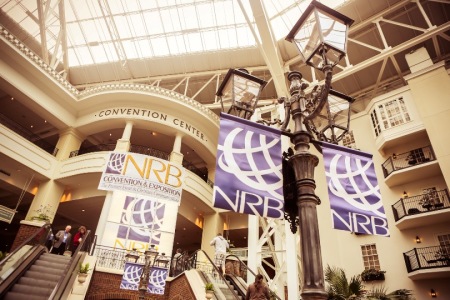Supreme Court rejects NRB request to stop ‘unlawful’ religious webcaster fees

The U.S. Supreme Court has rejected a request by the National Religious Broadcasters to halt the implementation of a rate system that reportedly forces noncommercial religious webcasters to pay more to promote religious messages than secular entities.
In an orders list released Monday morning, the Supreme Court denied certiorari in the case of National Religious Broadcasters v. Copyright Royalty Board et al. without comment.
This allows an earlier ruling from a three-judge panel of the U.S. Circuit Court of Appeals for the District of Columbia in favor of the new rate system to stand.
NRB filed suit against the Copyright Royalty Board over their issuing a Final Determination for rates and terms for webcasters that is in effect from 2021-2025, arguing that the standard unfairly treated religious webcasters.
Alliance Defending Freedom, a legal nonprofit that specializes in religious freedom cases, helped to represent the NRB.
ADF Senior Counsel John Bursch, vice president of appellate advocacy, said in a statement earlier this year that he believed the board was “violating federal law and the U.S. Constitution.”
“The government punishes noncommercial religious broadcasters by making them pay a license fee more than 18 times higher than NPR above a modest listener threshold,” Bursch said.
“This unlawful discrimination forces some noncommercial religious stations to stay small and restrict their listener reach so they can afford to stream online.”
The D.C. Appeals Court panel issued a per curiam opinion in July 2023 affirming the board’s decision regarding the religious webcasters.
The panel ruled that the board had “appropriately exercised its discretion in declining to set a separate, lower rate for simulcasters” and “reasonably declined” arguments “supporting a separate rate for simulcasters.”
“The Services have demonstrated no reason to bar the Board’s consideration of SoundExchange’s increased average administrative cost, and the Board’s determination comports with our precedent as well as with the Board’s prior determinations,” read the opinion.
“Given the evidence of (1) SoundExchange’s estimated increase in average administrative cost, (2) a voluntary agreement to a higher minimum fee between SoundExchange and CBI, and (3) general inflation since 2006, we find the Board had substantial evidence to support its decision that a $1,000 minimum fee reasonably satisfied the willing buyer/willing seller standard.”
In February, NRB filed a petition for a writ of certiorari to the Supreme Court, claiming that the board “adopted rates requiring noncommercial religious webcasters to pay over 18 times the secular NPR-webcaster rate to communicate religious messages to listeners above a modest 218-average listener threshold.”
“More than 25 years after Congress established a webcasting statutory license, this Court has yet to weigh in on the Board’s and D.C. Circuit’s rate-setting decisions,” stated the petition.
“Absent this Court’s course correction, the Board is likely to continue to disregard [the Religious Freedom Restoration Act] and the First Amendment in its rate-setting determinations.”





















